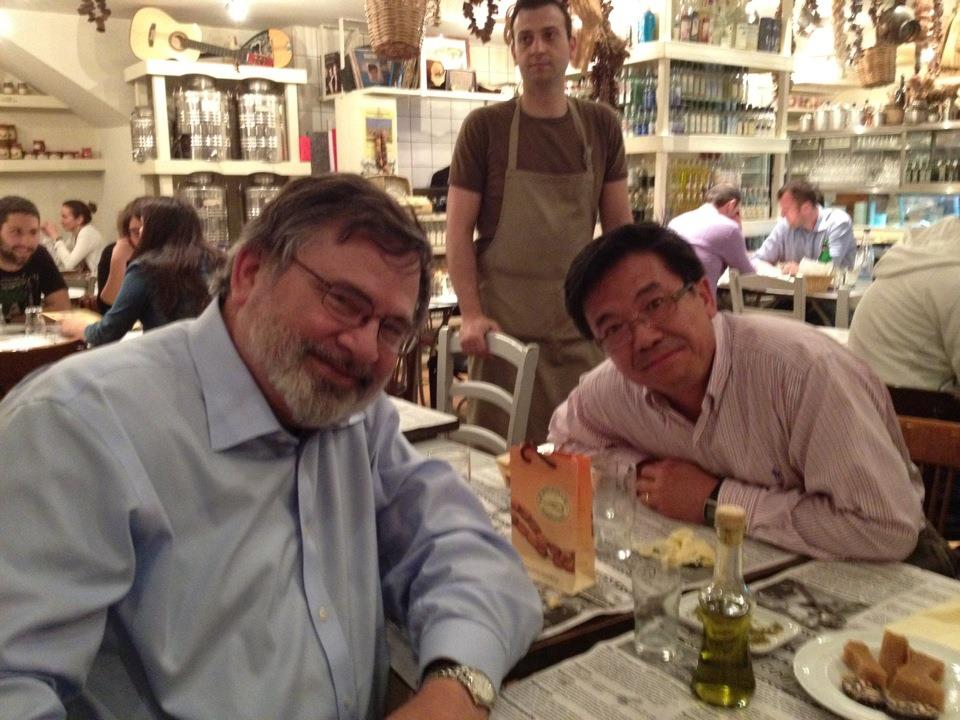Although faculty from the University of Alabama (UA) have individually been taking students to Greece for many years (via education abroad courses), the College of Arts & Sciences’ Alabama/Greece Initiative began formally in 2010 when Dean Robert Olin (now Dean Emeritus) began exploring the possibilities of such a working relationship by funding the first AUTh doctoral student to come to the United States, on a work visa, to work for one semester in the Department of Religious Studies and the Department of Modern Languages and Classics. A second AUTh doctoral student was employed by UA for a semester in 2012 and, in the intervening year (2011), two AUTh faculty members (from theology and music) were each brought to Alabama for a week, to lecture and learn more about The University of Alabama.
To further explore the possibility of a long-term collaborative relationship between the two universities, Dean Olin and Associate Dean Luoheng Han (now Associate Provost), traveled to Thessaloniki in May 2012, to meet with representatives of AUTh’s International Committee as well as various administrators and faculty. By the following fall a draft agreement was developed by the two universities and a formal Memorandum of Understanding was signed by early 2013.
The next phase of the initiative was then planned for 2014:
1) Dean Spyros Pavlides was identified as an AUTh faculty member and administrator to invite to Tuscaloosa for a week of meetings and lectures and,
2) seven UA faculty traveled to Thessaloniki in early May 2014, to work one‐on‐one with AUTh collaborators on common research projects.
Collaboration continued with similar faculty trips to Aristotle University in May 2015, May 2016, and May 2018. In 2017 and 2019, faculty and administrators from Aristotle University traveled to UA.
The COVID-19 pandemic halted all in-person collaborations in Greece, but A&S departments continued to collaborate with virtual programming in political science and religious studies.
In the fall of 2022, the College of Arts and Sciences was invited to participate in the IIE-IAPP Greece program (https://www.iie.org/news/first-iapp-greece-visit-strengthens-us-greek-higher-education-collaboration/) with the aim of increasing and expanding partnerships with AUTh and additional universities throughout Greece. From this program, new collaborations were identified, and MOUs were created with Ionian University in Corfu and the University of Western Macedonia in Kozani, Greece.
In May 2023 a small group of faculty representing each division traveled to AUTh, IU, and UOWM to identify potential activities with faculty and students in A&S.
The next stage hopes to continue faculty collaborations and student mobility, but also develop sustained internship opportunities for both UA and our Greek partner university students. In May 2024, a group of faculty will travel to Greece to identify such internship opportunities and in fall 2024, we will bring representatives from AUTh and IU to Alabama to explore opportunities for Greek students.
Read a May 2019 report on the Initiative’s successes (PDF)

